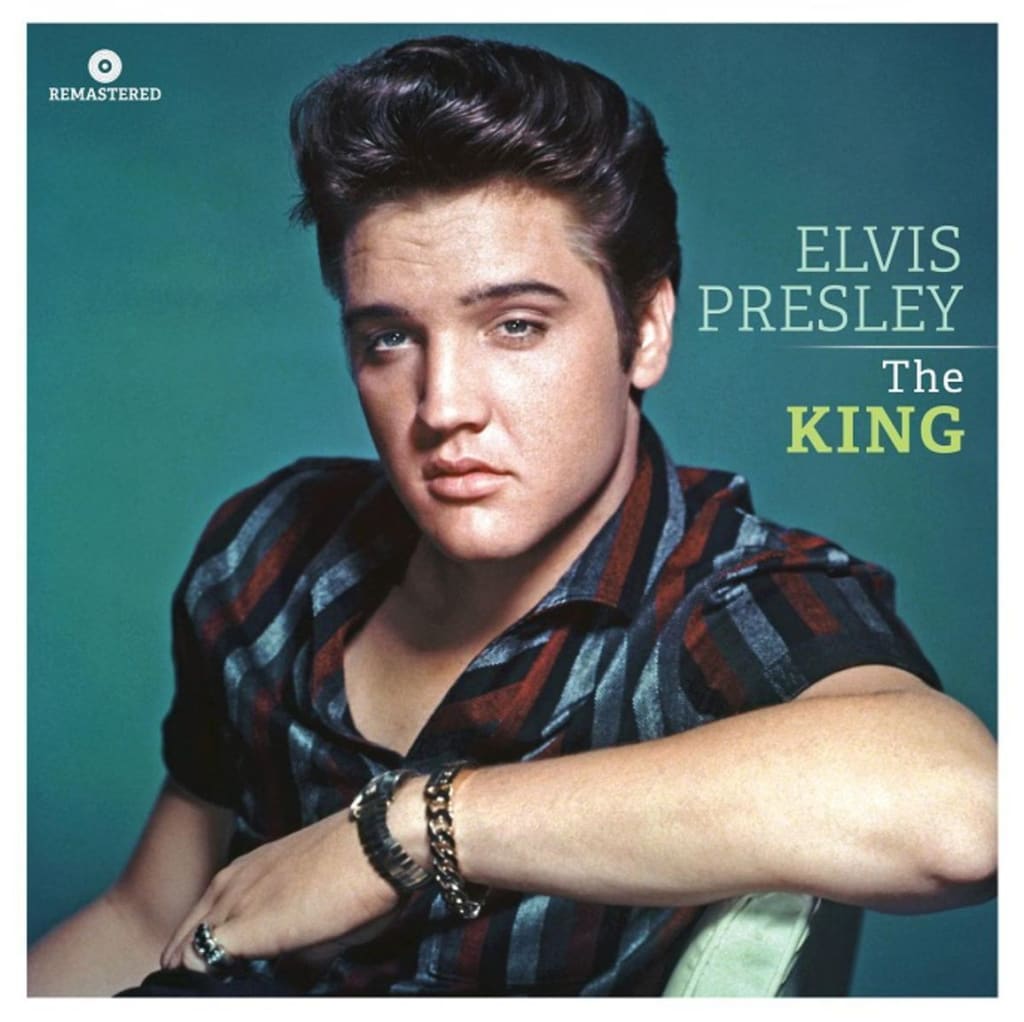Elvis Presley: The Life and Legacy of the King of Rock 'n' Roll
by David Pieringer

Elvis Presley: The Life and Legacy of the King of Rock 'n' Roll
Elvis Presley, born on January 8, 1935, in Tupelo, Mississippi, is a cultural icon whose influence on music, film, and popular culture is unparalleled. Known as the "King of Rock 'n' Roll," Elvis revolutionized the music industry with his distinctive voice, charismatic stage presence, and groundbreaking fusion of musical genres. This article explores Elvis Presley’s early life, rise to fame, musical evolution, acting career, personal life, and enduring legacy.
Early Life and Influences
Elvis Aaron Presley was born to Vernon and Gladys Presley in a modest two-room house. From a young age, Elvis was exposed to a diverse range of musical influences, including gospel music from the local church, blues from the nearby Beale Street in Memphis, and country music from the Grand Ole Opry broadcasts. His family's financial struggles and his close relationship with his mother shaped his early life and work ethic.
In 1948, the Presley family moved to Memphis, Tennessee, seeking better economic opportunities. Elvis attended Humes High School, where he was considered an outsider due to his unique style and shyness. Despite his quiet demeanor, he began to develop his musical talents, inspired by artists like Hank Snow, Jimmie Rodgers, and especially African-American artists such as B.B. King and Arthur Crudup.
Rise to Fame
Elvis's rise to fame began in 1953 when he recorded a demo at Sun Studio in Memphis. Sam Phillips, the owner of Sun Records, saw potential in Elvis and paired him with guitarist Scotty Moore and bassist Bill Black. In 1954, they recorded "That's All Right," a rendition of Arthur Crudup's blues song, which received significant radio play and launched Elvis's career.
Elvis's unique blend of rhythm and blues, country, and gospel music, combined with his dynamic stage presence, set him apart from other artists of the time. His performances on regional radio and television shows helped him gain a devoted following. In 1955, Elvis signed with RCA Victor, and his first single with the label, "Heartbreak Hotel," released in January 1956, became a massive hit, reaching number one on the Billboard charts.
Musical Evolution and Impact
Elvis's music evolved throughout his career, reflecting his versatility and ability to adapt to changing musical landscapes. His early recordings with Sun Records, characterized by a raw, energetic rockabilly sound, laid the foundation for his later success. With RCA, Elvis produced a series of groundbreaking hits, including "Hound Dog," "Don't Be Cruel," "Love Me Tender," and "Jailhouse Rock."
In the late 1950s and early 1960s, Elvis expanded his musical repertoire to include ballads, gospel, and pop standards. His albums "Elvis Is Back!" (1960) and "Something for Everybody" (1961) showcased his ability to tackle diverse genres. Despite his evolving musical style, Elvis's voice remained the cornerstone of his success, known for its richness, emotional depth, and distinctive timbre.
Elvis's impact on music extends beyond his chart-topping hits. He played a crucial role in popularizing rock 'n' roll and breaking down racial barriers in the music industry. His fusion of African-American blues and gospel with country and pop music helped bridge cultural divides and paved the way for future artists. Elvis's influence can be seen in the work of countless musicians, from The Beatles to Bruce Springsteen.
Acting Career
In addition to his musical achievements, Elvis pursued a successful acting career, starring in 31 feature films. His first film, "Love Me Tender" (1956), capitalized on his musical success and showcased his acting potential. Although many of his films were formulaic musicals designed to appeal to his fan base, they were commercially successful and solidified his status as a pop culture icon.
Notable films in Elvis's career include "Jailhouse Rock" (1957), "King Creole" (1958), "G.I. Blues" (1960), and "Viva Las Vegas" (1964). While some critics dismissed his films as lightweight entertainment, others recognized Elvis's natural charisma and screen presence. His movies introduced his music to a broader audience and contributed to his global fame.
Personal Life and Challenges
Elvis's personal life was marked by triumphs and challenges. In 1958, he was drafted into the U.S. Army, serving two years in Germany. His military service, often seen as a turning point in his career, demonstrated his patriotism and broadened his appeal. During his time in the Army, Elvis met Priscilla Beaulieu, whom he would later marry in 1967.
The couple had one daughter, Lisa Marie Presley, born in 1968. Despite the public perception of a fairy-tale romance, Elvis and Priscilla's marriage faced difficulties, leading to their divorce in 1973. Elvis's demanding career, infidelity, and substance abuse issues contributed to the strain on their relationship.
Elvis struggled with prescription drug addiction, which took a toll on his health and personal life. Despite his challenges, he remained dedicated to his career, continuing to perform and record music. His 1968 "Comeback Special" marked a return to form, showcasing his electrifying stage presence and reaffirming his status as the King of Rock 'n' Roll.
Philanthropy and Social Impact
Elvis's philanthropy and social impact are integral to his legacy. Throughout his career, he supported numerous charitable causes, often donating anonymously. His generosity extended to individuals in need, funding scholarships, medical bills, and community projects. Elvis's commitment to giving back reflected his deep connection to his fans and his desire to make a positive impact on the world.
Elvis's influence on social and cultural issues is also significant. He challenged societal norms with his provocative performances and fashion choices, pushing the boundaries of what was considered acceptable in the 1950s and 1960s. His embrace of African-American music and culture helped break down racial barriers and promote integration during a time of significant social change in the United States.
Legacy and Influence
Elvis Presley's legacy is defined by his contributions to music, film, and popular culture. As the King of Rock 'n' Roll, he revolutionized the music industry, creating a sound and style that continue to inspire artists across genres. His distinctive voice, energetic performances, and genre-blending music set new standards for excellence and innovation.
Elvis's influence extends beyond music, as he played a pivotal role in shaping modern celebrity culture. His charisma, fashion sense, and larger-than-life persona set the template for future generations of entertainers. The phenomenon of "Elvismania" demonstrated the power of mass media and fan culture, laying the groundwork for the global pop culture landscape we see today.
Elvis's impact on film is also notable. While his movies were often seen as vehicles for his music, they showcased his versatility as an entertainer and expanded his reach to new audiences. His films remain popular, contributing to his enduring legacy as a cultural icon.
Cultural Impact
Elvis Presley's cultural impact is vast and enduring. He broke new ground in music, film, and fashion, influencing countless artists and entertainers. His ability to blend musical genres and push cultural boundaries set the stage for future innovations in popular culture.
Elvis's influence can be seen in the work of numerous musicians, from rock 'n' roll pioneers like Chuck Berry and Little Richard to contemporary artists like Bruno Mars and Justin Timberlake. His music continues to resonate with audiences worldwide, and his iconic image remains a symbol of rebellion and individuality.
Elvis's impact on fashion is also significant. His distinctive style, characterized by flashy jumpsuits, leather jackets, and slicked-back hair, has become synonymous with rock 'n' roll. His fashion choices challenged conventional norms and inspired future generations of artists to embrace their unique styles.
Conclusion
Elvis Presley's journey from a modest upbringing in Tupelo, Mississippi, to becoming a global cultural icon is a testament to his talent, charisma, and vision. His contributions to music, film, and popular culture have left an indelible mark on the world. As an artist, entertainer, and philanthropist, Elvis continues to inspire and influence future generations.
His legacy is one of innovation, empowerment, and transformation. Elvis's ability to navigate the complexities of fame, creativity, and personal challenges has ensured his enduring relevance and success. As we continue to celebrate his life and work, Elvis Presley's impact on music, culture, and society remains as powerful as ever.
About the Creator
David Pieringer
Welcome to my page! I'm a dedicated writer and student with a passion for both education and sports. Balancing my love for learning with my athletic pursuits, I strive to excel in everything I do.
Enjoyed the story? Support the Creator.
Subscribe for free to receive all their stories in your feed. You could also pledge your support or give them a one-off tip, letting them know you appreciate their work.






Comments
There are no comments for this story
Be the first to respond and start the conversation.